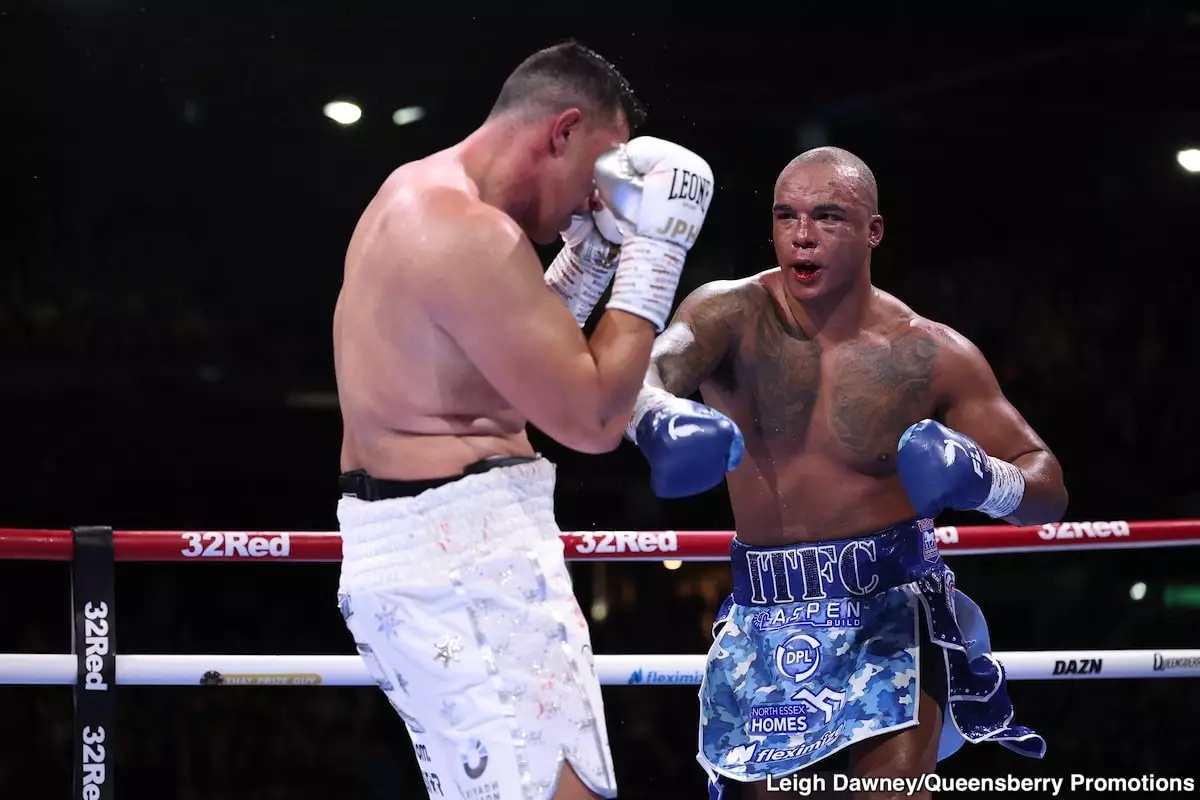In the world of boxing, moments of sheer drama can shift the trajectory of a fighter’s career in seconds. Such was the case on a fateful Saturday night in Ipswich, where the rising British heavyweight star Fabio Wardley faced Justis Huni in a gripping contest for the WBA interim heavyweight title. As the rounds progressed, the tide indicated a grim outcome for Wardley. Then came the turning point: a powerful right hand from Wardley that not only changed the course of that bout but also ignited fierce discussions over the referee’s decision to stop the fight.
This stoppage led Huni’s camp, particularly manager Mick Francis, to cry foul, arguing that the fight was ended prematurely. Such allegations are not new in boxing — a sport infamous for its contentious calls and divided opinions. Fans and analysts now find themselves pondering the nuances of this particular bout, questioning the implications of refereeing decisions on the sport’s integrity.
Understanding the Referee’s Role
Wardley’s response to the uproar surrounding the referee’s decision was clear and calculated. He highlighted that the moment Huni hit the canvas, the official count began, emphasizing that the referee possesses the discretion to halt the fight based on a fighter’s physical and mental state. This is more than just mechanical counting; it reflects an understanding of the fighter’s readiness to continue. In boxing, this conundrum is fraught with responsibility — a referee’s decision can salvage lives or inadvertently put them in jeopardy.
As Wardley pointed out, the referee’s judgment must balance an array of factors: not only does a fighter’s count matter, but their overall stability and awareness is pivotal. The stakes are high, and the ramifications of any delay in stopping a fight can lead to dire consequences.
In this light, Wardley’s assertion that the referee acted appropriately seems to underline a cardinal rule in boxing: the health and safety of the fighters must always take precedence. It raises an essential question about what constitutes a “safe” fighter: is it merely being able to rise to one’s feet, or does it involve a more holistic assessment of their physical and mental readiness?
The Ripple Effect of Public Opinion
In such a charged atmosphere, where opinions often run wild, one must consider the impact of Huni’s post-fight sentiments. He chose not to escalate the drama, declaring he wouldn’t “kick up a fuss” about the referee’s decision and acknowledged Wardley’s victory. This attitude underscores a significant aspect of sportsmanship — a lesson that transcends individual fights.
Yet, the unfolding drama has incited discussion among boxing enthusiasts and stakeholders. As Francis announced plans to file a formal complaint with the WBA, the specter of further scrutiny looms. With warded complaints often turning grey in their resolution, one can only wonder about the fallout of such actions. What sets the stage for official disputes is often less about the fight itself and more about the narratives crafted around it.
A Future of Reflection and Responsibility
There’s also a more substantial issue at play which relates to the culture of blame within combat sports. Do we stand to gain from dissecting a referee’s decisions ad infinitum, or is there value in fostering a culture that places accountability on fighters to express their readiness to go on? To question the referee’s call is to question the very framework of the sport predicated on respect for both the fighter and the official’s judgment.
The reality is that while referees are tasked with making instantaneous decisions, fighters have their own moral obligation to step into the ring ready to defend their lives. Where that balance is struck will continue to shape the narrative of boxing and its fighters — and as we have seen with the Wardley-Huni bout, these moments create opportunities for growth and discussion about safety and fairness.
In the aftermath of fights, especially contentious ones like this, the goal should perhaps be more profound than discontent; it should lean towards a deeper respect for the roles each participant plays in this magnificent sport. For both coaches and fighters, understanding the broader implications of their actions — and decisions — off the canvas can pave the way for a more responsible and respectful sporting community.


Leave a Reply